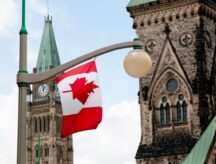Canada’s Maritime Provinces experiencing “fastest” population growth in decades
Immigration is helping drive the fastest population growth in decades in Prince Edward Island, Nova Scotia and New Brunswick, says a new report by the Atlantic Provinces Economic Council.
The three provinces, collectively known as Canada’s Maritime provinces, have been the focus of intensive efforts to attract and retain skilled foreign workers and their families in recent years.
Immigration is seen as key to reversing population and labour force declines caused by migration to other provinces, low fertility rates, and their older populations.
This emphasis on immigration has combined with a drop in the number of residents leaving the region for work opportunities elsewhere in Canada to spark population growth rates in the Maritime provinces unseen since at least 1991, the Atlantic Provinces Economic Council (APEC) reports.
Prince Edward Island, known as PEI, has experienced what APEC described as an “incredible” population growth rate of two per cent year-over-year since 2016.
The report said net international immigration was “the biggest contributor” to these results in PEI, “with the province recording the largest number of new immigrants in Canada in 2016-2018, relative to the size of its population.”
Nova Scotia posted an average growth rate of 0.8 per cent during the same period, which the council said was its fastest since the mid-1980s.
New Brunswick averaged an annual growth rate of 0.5 per cent, which was its highest since the early 1990s.
Newfoundland and Labrador was the only province in Atlantic Canada to register a negative growth rate, with its population decreasing by 0.2 per cent per year.
Provincial Nominee Programs ‘biggest source’ of newcomers
According to the APEC report, provincial nominee programs in Canada’s Atlantic provinces brought 22,000 newcomers to the region between 2016 and 2018, making them “the biggest source of new immigrants.”
Provincial nominee programs, or PNPs, allow participating Canadian provinces to nominate a specified number of economic immigration candidates each year for permanent residence in Canada.
Each PNP is divided into a number of streams that are designed to meet diverse labour force needs in the province.
The Atlantic Immigration Pilot, a federal-provincial initiative launched two years ago to attract international workers to the region, has brought in an additional 1,600 new immigrants since late 2017, APEC said.
The pilot provides a fast-track to Canadian permanent residence for foreign workers hired by employers in the Atlantic Canada region for jobs they haven’t been able to fill locally.
While encouraging, APEC said it is still too early to determine whether the impressive population growth experienced in PEI, Nova Scotia and New Brunswick in recent years will be sustained.
Find out if you are eligible for immigration to Canada
© 2019 CICNews All Rights Reserved
- Do you need Canadian immigration assistance? Contact the Contact Cohen Immigration Law firm by completing our form
- Send us your feedback or your non-legal assistance questions by emailing us at media@canadavisa.com







